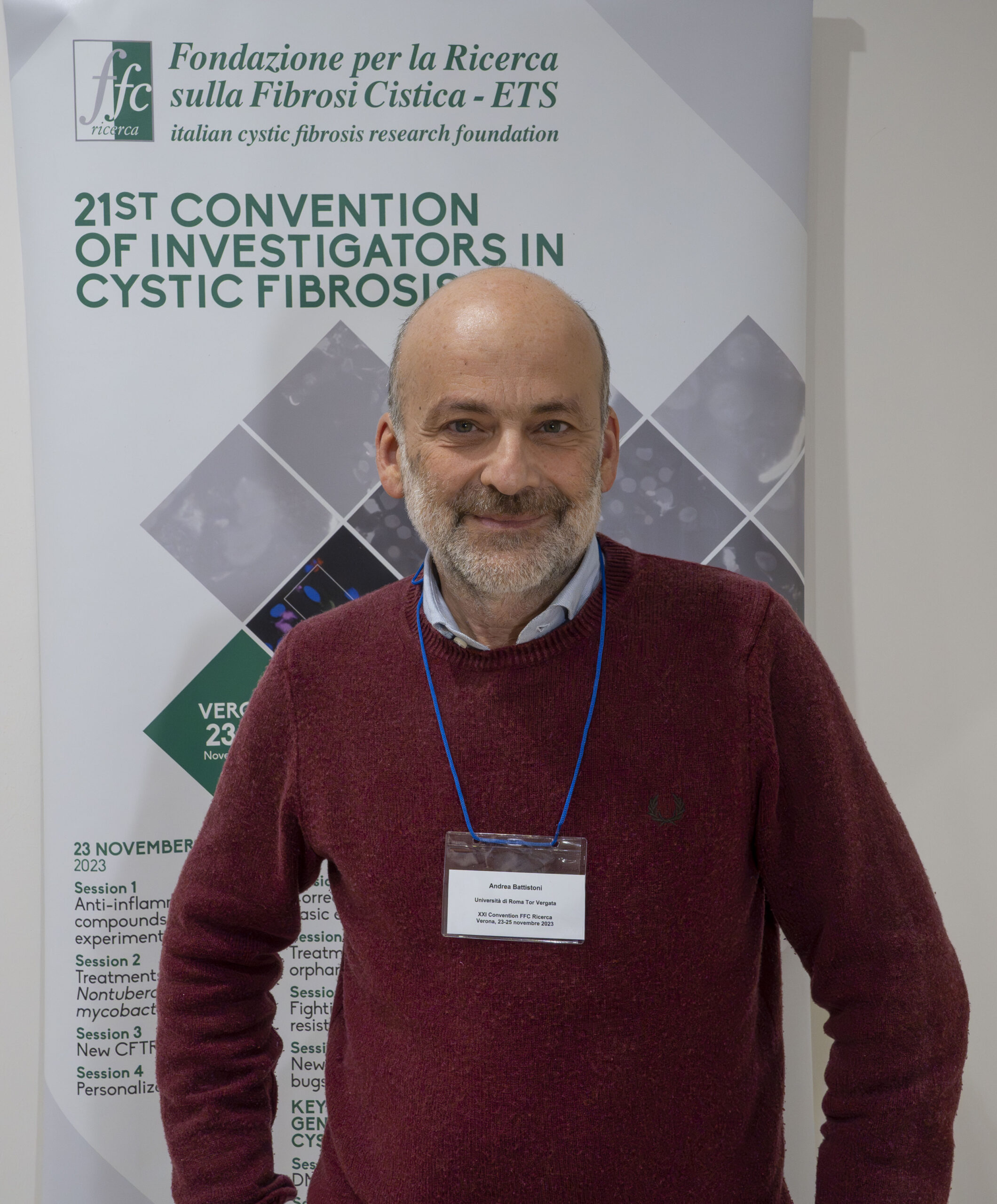Developed skills and lines of research
Andrea Battistoni obtained his BSc in Biology in 1986 and PhD in Molecular and Cellular Biology in 1991, at the University of Rome Tor Vergata. Since 2012, he has been an associate professor of Biochemistry at the Department of Biology, University of Rome Tor Vergata. His research activity has developed over the years around: the analysis of the role of transition metals and metalloproteins in bacterial virulence; the analysis of the structure and function of Cu/Zn superoxide dismutase; metals and antioxidants in CF pathogenesis; new antibacterial strategies based on interference with metal homeostasis. In the CF field, he is studying the role of zinc and its transport mechanisms against Pseudomonas aeruginosa. He has authored or co-authored more than 100 publications in international journals; H-index of 36.
Projects funded by FFC Ricerca as Principal Investigator
FFC#4/2023
A Trojan Horse Strategy To Improve The Treatment Of Pseudomonas Aeruginosa Lung Infections
FFC#13/2012
Role of high affinity zinc transporters in Pseudomonas aeruginosa ability to colonize the inflamed cystic fibrosis lung
FFC#15/2010
Evaluation of the usefulness of therapeutic approaches aiming at increasing glutathione levels in the airways of Cystic Fibrosis patients to control lung infections and bacterial-induced damage
FFC#11/2008
Effect of glutathione and lactoferrin on redox regulation, metal homeostasis and inflammatory responses of Cystic Fibrosis bronchial cells upon infection with Burkholderia cenocepacia
FFC#15/2006
Contribution of alterations in metal and glutathione homeostasis to the bacterial infections typical of cystic fibrosis and examination of the possible protective role of lactoferrin and antioxidants
Publications from FFC Ricerca projects
- Berlutti F, Superti F, Nicoletti M et al., Lactoferrin inhibits the efficiency of invasion of respiratory A549 cells of different iron-regulated morphological forms of Pseudomonas aeruginosa and Burkholderia cenocepacia, Int J Immunopathol Pharmacol., 2008, 21(1):51-9
- Valenti P, Catizone A, Pantanella F et al., Lactoferrin decreases inflammatory response by cystic fibrosis bronchial cells invaded with Burkholderia cenocepacia iron-modulated biofilm, Int J Immunopathol Pharmacol., 2011, 24(4):1057-68
- Ciavardelli D, D’Orazio M, Pieroni L et al. Proteomic and ionomic profiling reveals significant alterations of protein expression and calcium homeostasis in cystic fibrosis cells, Molecular Biosystem, 2013, 9(6):1117-26
- D’Orazio M, Pacello F, Battistoni A. Extracellular glutathione decreases the ability of Burkholderia cenocepacia to penetrate into epithelial cells and to induce an inflammatory response, PLoS ONE, 2012, 7(10):e47550
- D’Orazio M, Cerasi M, Mastropasqua MC et al., Pseudomonas aeruginosa capability to colonize the CF lung may be favored by its remarkable ability to recruit zinc under conditions of limited metal availability, Journal of Cystic Fibrosis, 2014, 13(2) S3
- D’Orazio M, Mastropasqua MC, Cerasi M et al., The capability of Pseudomonas aeruginosa to recruit zinc under conditions of limited metal availability is affected by inactivation of the ZnuABC transporter, Metallomics 2015, 7(6):1023-35
- Mastropasqua MC, D’Orazio M, Cerasi M et al. Growth of Pseudomonas aeruginosa in zinc poor environments is promoted by a nicotianamine-related metallophore. Mol Microbiol 2017 Nov;106(4):543-561

